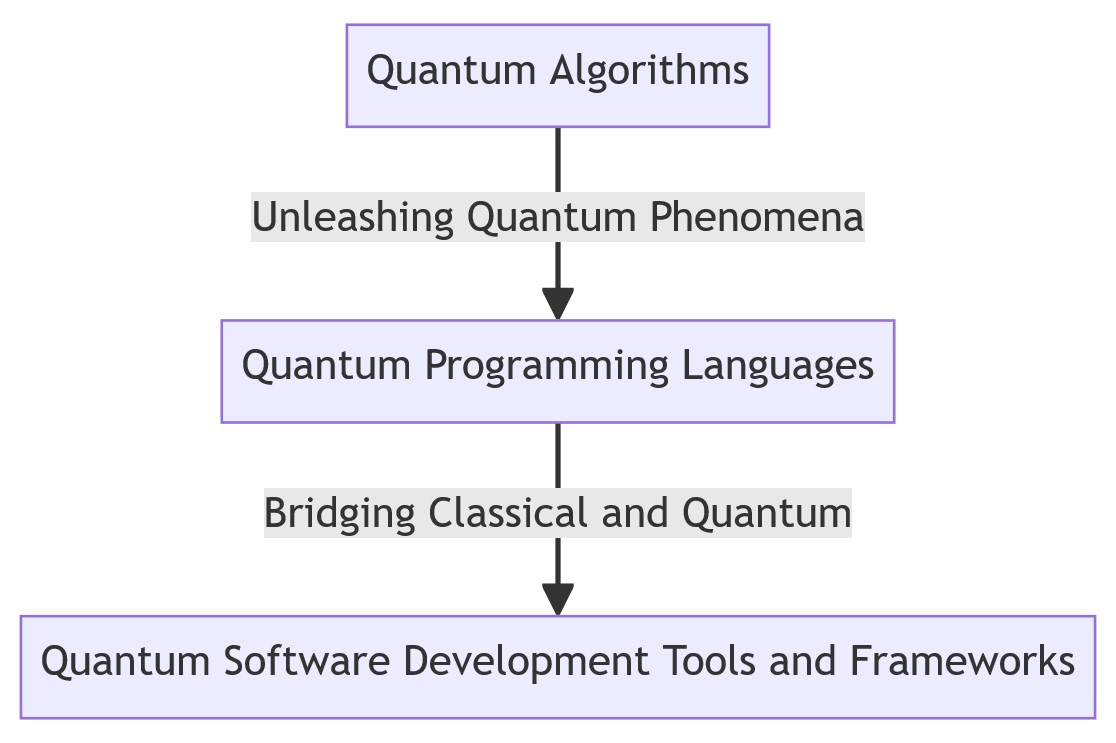By: Aiyaan Hasan, International Center for AI and Cyber Security Research and Innovations (CCRI), Asia University, Taiwan, rayhasan114@gmail.com
Abstract:
Quantum Software Development is a frontier in the growing computing landscape, where classical software engineering approaches intersect with the unique properties of quantum computing. This investigation looks at the obstacles and opportunities that come with developing software for quantum processors. This article goes into all aspects of quantum software creation, from the fundamentals of quantum algorithms to the developing quantum programming languages and the tools that empower quantum software developers. Understanding the paradigm shift in software development is critical for exploiting the revolutionary potential of quantum computing as quantum technologies advance.
Introduction:
The development of quantum computing has resulted in a paradigm change in the way we think about and build software.[1] At the convergence of traditional software engineering and quantum concepts, Quantum Software Development opens up new options for creativity. This introduction sets the context for an investigation of the unique characteristics of quantum algorithms, developing quantum programming languages, and the tools that serve as the foundation of quantum software development.[2] The convergence of classical and quantum computing marks a new era of computation as we navigate this quantum computing paradigm.[3]

Power of Superposition and Entanglement with Quantum Algorithms:
Algorithms undergo a fundamental shift in the quantum realm, exploiting the power of superposition and entanglement. It delves into the fundamental concepts of quantum algorithms, demonstrating how quantum phenomena redefine computation. From Shor’s factoring algorithm to Grover’s search algorithm, quantum algorithms offer exponential speedups in specific problem domains, challenging conventional ideas of computer complexity.[4]
Quantum Software Applications: From Optimization to Machine Learning:
The transformational potential of quantum software spans across a wide range of applications. It explains how quantum algorithms are revolutionizing computational approaches, from optimization issues to machine learning tasks. Concrete examples and case studies demonstrate the practical consequences of quantum software in solving real-world problems, indicating a paradigm shift in classical computer capabilities.
The Quantum Software Development Future:
A view into the future illustrates continuing research paths and the pursuit for Quantum Advantage as quantum software development progresses. It looks at prospective breakthroughs, collaborative initiatives affecting the quantum software ecosystem, and the path to quantum dominance. The combination of quantum software creation with quantum hardware has the potential to redefine the frontiers of computation, ushering in a new era in the digital landscape.
Conclusion:
Finally, Quantum Software Development demonstrates the interaction between traditional software engineering and quantum computing’s revolutionary potential. Navigating this paradigm requires a thorough understanding of quantum algorithms, fluency in quantum programming languages, and expert use of quantum software development tools. The revolutionary potential that comes from quantum software development holds the promise of changing industries and addressing complicated issues, paving the way for a quantum future in which classical and quantum computing merge in unexpected ways. As we approach the end of this transformative age, Quantum Software Development emerges as a driving force, propelling us into unknown computational territory.
References:
- Weder, B., Barzen, J., Leymann, F., & Vietz, D. (2022). Quantum software development lifecycle. In Quantum Software Engineering (pp. 61-83). Cham: Springer International Publishing.
- Weder, B., Barzen, J., Leymann, F., Salm, M., & Vietz, D. (2020, November). The quantum software lifecycle. In Proceedings of the 1st ACM SIGSOFT International Workshop on Architectures and Paradigms for Engineering Quantum Software (pp. 2-9).
- Fingerhuth, M., Babej, T., & Wittek, P. (2018). Open source software in quantum computing. PloS one, 13(12), e0208561.
- Wineland, D. J. (2013). Nobel Lecture: Superposition, entanglement, and raising Schrödinger’s cat. Reviews of Modern Physics, 85(3), 1103.
- Deveci, M., Pamucar, D., Gokasar, I., Köppen, M., & Gupta, B. B. (2022). Personal mobility in metaverse with autonomous vehicles using Q-rung orthopair fuzzy sets based OPA-RAFSI model. IEEE Transactions on Intelligent Transportation Systems.
- Cvitić, I., Perakovic, D., Gupta, B. B., & Choo, K. K. R. (2021). Boosting-based DDoS detection in internet of things systems. IEEE Internet of Things Journal, 9(3), 2109-2123.
- Lv, L., Wu, Z., Zhang, L., Gupta, B. B., & Tian, Z. (2022). An edge-AI based forecasting approach for improving smart microgrid efficiency. IEEE Transactions on Industrial Informatics, 18(11), 7946-7954.
- Stergiou, C. L., Psannis, K. E., & Gupta, B. B. (2021). InFeMo: flexible big data management through a federated cloud system. ACM Transactions on Internet Technology (TOIT), 22(2), 1-22.
- Almomani, A., Alauthman, M., Shatnawi, M. T., Alweshah, M., Alrosan, A., Alomoush, W., & Gupta, B. B. (2022). Phishing website detection with semantic features based on machine learning classifiers: a comparative study. International Journal on Semantic Web and Information Systems (IJSWIS), 18(1), 1-24.
Cite As
Hasan A. (2023) Quantum Software Development Navigating the Quantum Computing Paradigm, Insights2Techinfo, pp.1